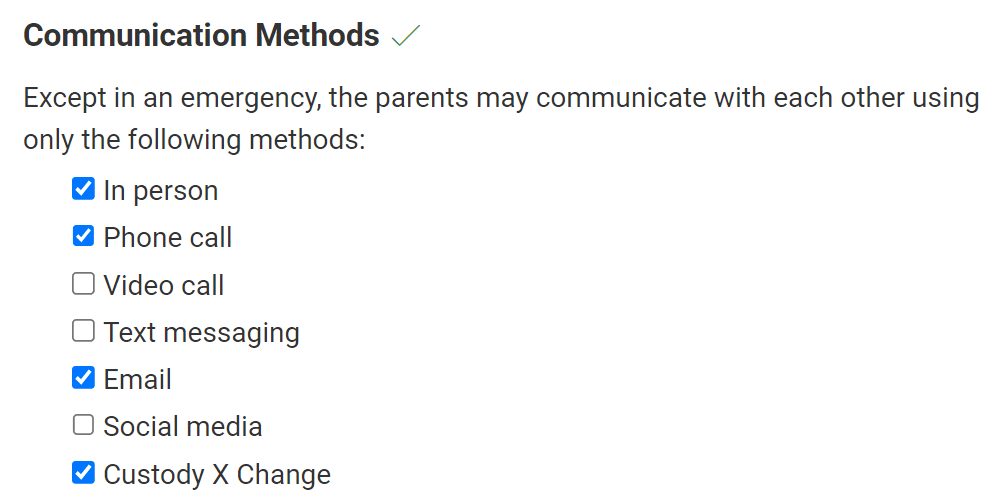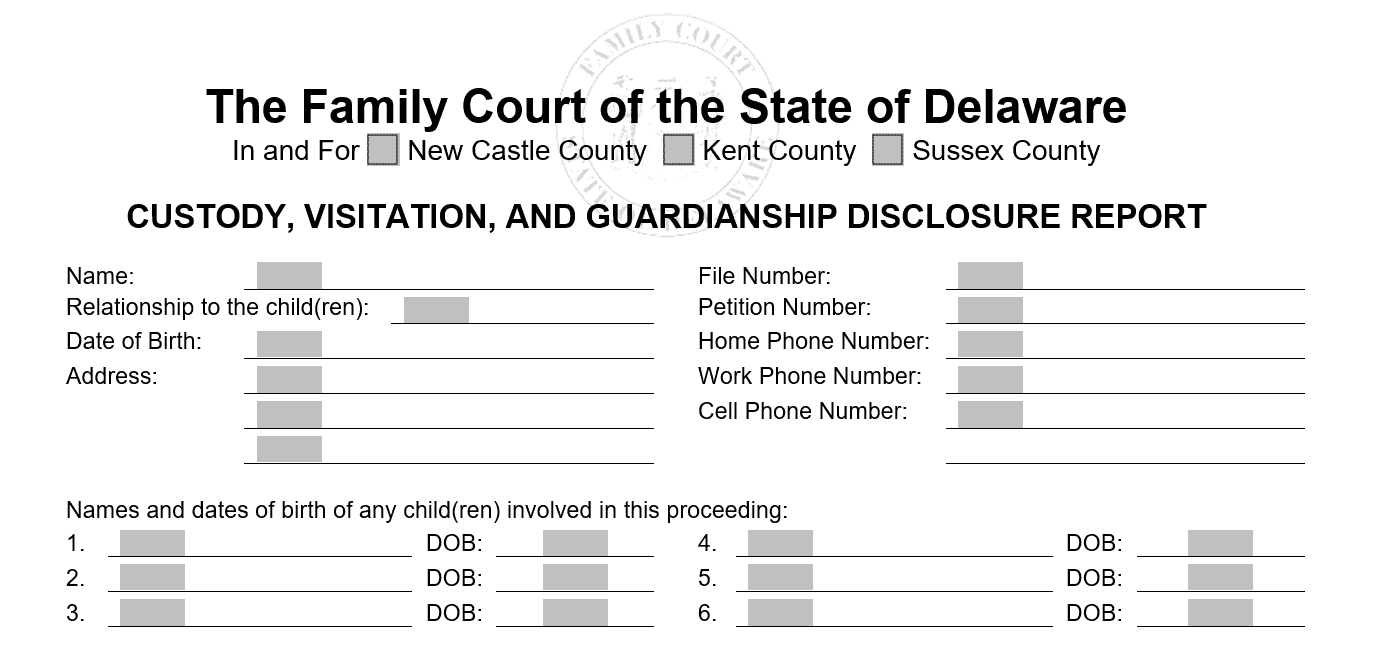Delaware Parenting Plans (Custody Agreements)
A parenting plan is a guide to parenting apart.
It's a helpful way to organize the terms of an agreement or add detail to your disclosure report, which you must hand in as part of your custody case. If a judge approves your parenting plan, both parents have to follow it.
What to include in your parenting plan
Child contact schedules
A contact schedule shows when the child will be in each parent's custody.
 You can customize this with Custody X Change.
You can customize this with Custody X Change.
Choose a schedule that aligns with the type of placement you've chosen.
Shared placement gives parents nearly equal time. For child support purposes, this means at least 164 overnights each per year.
Primary placement gives one parent the majority of time. The noncustodial parent gets regular visits. If it's not safe for the child to be alone with the noncustodial parent, or the child is not used to spending time with them, supervised visitation is an option.
Include holidays and school breaks to round out your schedule.
Legal custody
Legal custody is the right to make major decisions, like where the child goes to school.
It's rare for one parent to have sole legal custody.
It's most common for parents to have joint legal custody, meaning they both make decisions on the child's behalf. Parents might divide decision-making responsibility, giving one parent final authority on certain decisions, like the child's extracurriculars. They might turn to a third-party to help them settle disagreements.
 You can customize this with Custody X Change.
You can customize this with Custody X Change.
Exchanges
An exchange is when the child goes from one household to the other.
Your plan could include details about who is allowed to exchange the child (vital if you're co-parenting with new partners) and where the exchanges happen. You might need supervised exchanges if you're in a high-conflict situation.
Communication
Communication is key to a successful co-parenting relationship. Explain which modes of communication are acceptable.
 You can customize this with Custody X Change.
You can customize this with Custody X Change.
Set boundaries so you know what conversations are appropriate. For example, you could avoid discussing matters in your personal lives that won't impact your child.
Also, include how a parent can stay in touch with the child when they are with the other parent.
Child care
Child care covers who will watch the child when neither parent is available. You might agree to hire a babysitter or ask a relative to watch the child. State whether parents must ask one another if they're available to watch the child before reaching out to a third party.
 You can customize this with Custody X Change.
You can customize this with Custody X Change.
Child rearing
Child rearing can cover a range of topics, from the child's diet to curfew.

Since your child will be living in two households, mention how you will handle their belongings. You might require that they keep certain items at your house.
Modifications
Set rules for how you will handle updating your plan. You might choose to go to mediation to negotiate changes if you can't agree. (Courts like to see a provision that requires mediation.)
Adding a parenting plan to your disclosure report
A Custody, Visitation, and Guardianship Disclosure Report specifies custody proposals or agreements made by parents. It's available with other family court forms online.

Space is limited on the form, so you can attach a parenting plan to expand on your ideas.
 You can customize this with Custody X Change.
You can customize this with Custody X Change.
In your plan, go into detail about topics covered and not covered in the disclosure report. This will give the court all the information they need to thoughtfully consider your proposals.
The easiest way to make a parenting plan
When you're writing a parenting plan, it's critical you use airtight language that leaves no room for interpretation.
If you hire a lawyer, they'll write up the plan and ensure it meets the court's requirements.
If you write your own plan, use technology to take guesswork out of the equation. The parenting plan template in the Custody X Change online app walks you through each step.
 You can customize this with Custody X Change.
You can customize this with Custody X Change.
The result is a professional document that demonstrates your competence as a parent from the first glance.
The easiest and most reliable way to make a parenting plan is with Custody X Change.
